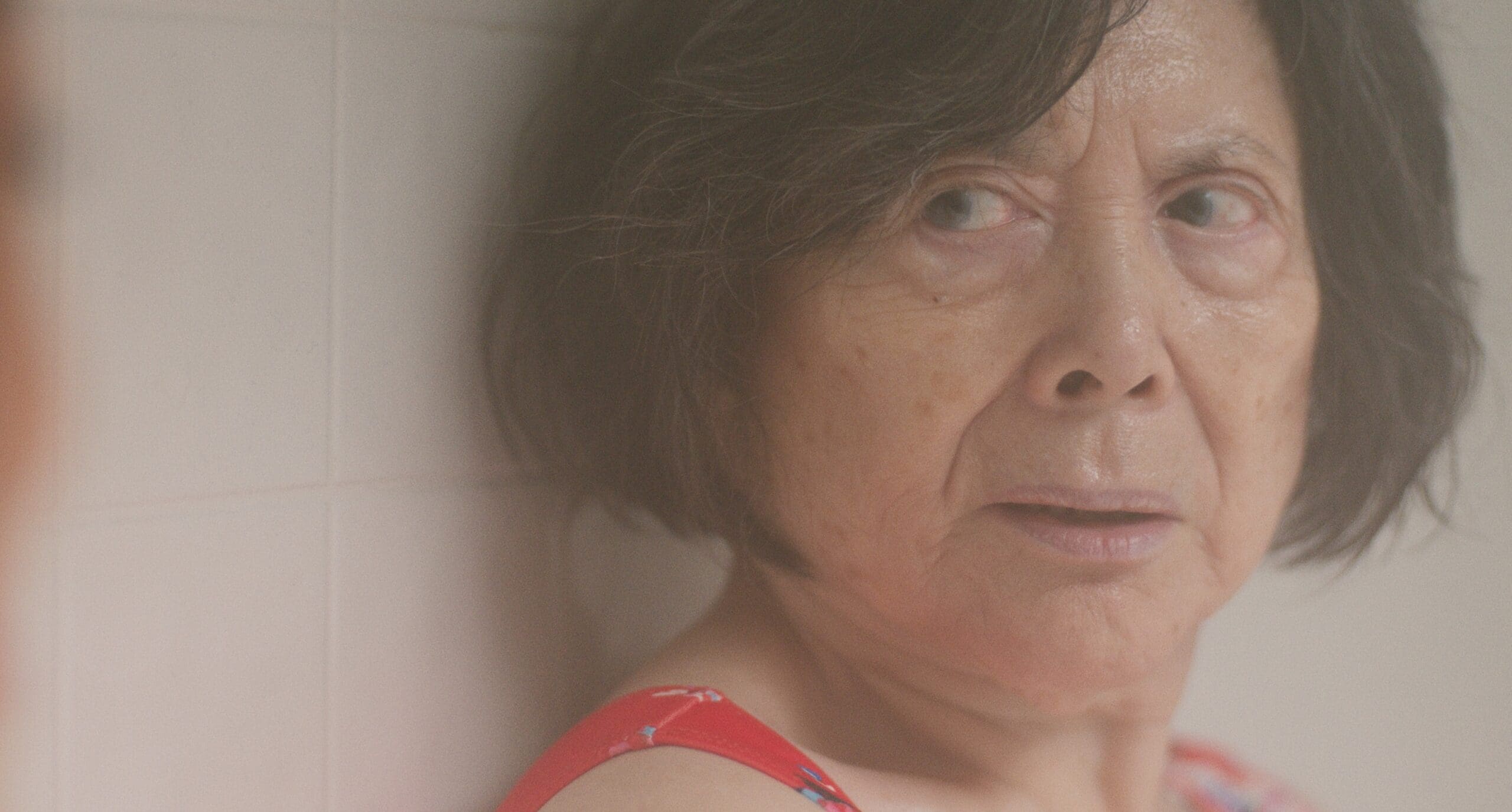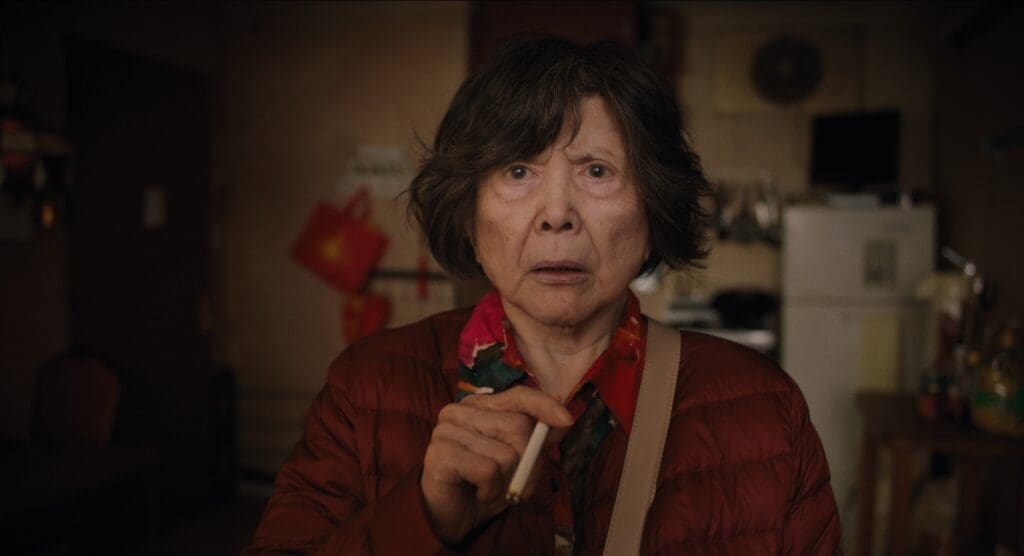Summary
Crime drama with a layer of melancholic comedy, Lucky Grandma is a rich and warm slice of Chinatown life, that shows the risks of fighting against the changing seasons of life.
What struck me first about Lucky Grandma is that it is a rare film: American, yet nearly all the dialogue is in Mandarin. The titular Grandma (Tsai Chin, who has been on our screens for over 50 years, most famously in The Joy Luck Club) and most of the people she encounters are American Chinese, living in New York City’s Chinatown. After Crazy Rich Asians, Searching and The Farewell, here is another welcome title that presents an aspect of Asian American life, and both she and her environment felt utterly real to me.
This Grandma – like many, perhaps – is holding on to her independence for as long as she bloody well can. Her late husband left her with nothing, and she spends nothing, just maintains her health, her traditions, and her home, though her son wishes for her to leave the city and move in with his family. Her doctor/fortune teller, Lei Lei (Wai Ching Ho) tells her that her luck is strong, so Grandma withdraws all her money and takes a bus trip to the casino, where she wins and wins and wins until suddenly she doesn’t. On the bus home, she chances upon a bag of money to replace that fallen luck… and thus finds herself caught between two criminal gangs.
Lucky Grandma is promoted as a “comedy-drama”, though to me it was amusing, rather than funny. That’s not a complaint: what makes one smile often also makes one think; and besides, the people were what made me smile, and they were the film’s true strength. This goes especially for Chin herself, who is both expressive and believable in every scene; and of course, for the contrast she provides. The first feature film from director Sasie Sealy (who also wrote it with Angela Cheng), Lucky Grandma is ostensibly a Chinese gangster flick, but with an elderly, assertive, cigarette-smoking woman in its center. She hires a bodyguard, Big Pong (Hsiao-Yuan Ha), negotiating in only the way an old woman can. She hides money in a bag of rice, dodges violent attacks at a hairdresser’s, and has a surprise meeting in a steam room.
 This adventure with both destiny and the urban underworld gives Grandma the character arc which forms the backbone of the story: it puts both her luck and her independence to their ultimate test. Consequently, there is a good deal of introspection about this central character, especially as the risks she takes lead to outcomes she hadn’t considered. If Lucky Grandma is a comedy, it is a slightly melancholy sort, but it works, as this tone definitely gives the characters some richness, even though we know little about their background.
This adventure with both destiny and the urban underworld gives Grandma the character arc which forms the backbone of the story: it puts both her luck and her independence to their ultimate test. Consequently, there is a good deal of introspection about this central character, especially as the risks she takes lead to outcomes she hadn’t considered. If Lucky Grandma is a comedy, it is a slightly melancholy sort, but it works, as this tone definitely gives the characters some richness, even though we know little about their background.
Many of the cast have established TV backgrounds (Mr. Mercedes, Gray’s Anatomy, etc.), and they all play their parts with ease. My only slight concern is that some of this ease may come from the myriad of Asian stereotypes they have been assigned to in the past feeding their parts here: Lucky Grandma too is full of what appear to be stereotypes (the fortune teller and the gangster, of course), but they are used with wit to tell her story… and for all I know (as a white European) they may be authentic character types in New York’s Chinatown. As I mentioned earlier, they certainly felt real. Softening the crime drama genre somewhat, many of the characters were also adorable; not least Big Pong. (His was actually the most interesting secondary character, as we gradually got to know him alongside Grandma, and felt for him as he got to know her.)
Lucky Grandma is a gorgeous film to watch: Eduardo Enrique Mayén’s cinematography allows us to get right into Grandma’s space, feel relaxed when she does, and panic when she does. I was happy too that composer Andrew Orkin didn’t overdo the Chinese style: too often, film composers can throw in clichéd sounds to reinforce the culture where the film is set, but here we had modern Chinese songs neatly interspersed with a contemporary electronic soundtrack of a familiar Hollywood style.
Anyway, in case you couldn’t tell, I liked Lucky Grandma a lot. In some parts, it was more dramatic than I expected, in some parts less: a lot like life. In another thirty years, I might like to be a Grandma like her.



